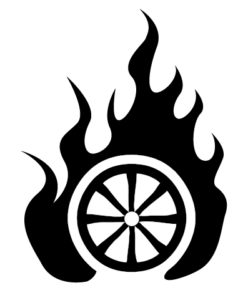I miss blogging. But I’m not sure I can continue doing it as openly as I did through high school and college.
I’ve been writing as a means for self-reflection and public expression for around 12 years. At first, it was in a private diary, but then one of my parents read it without my permission. For a teenager who wrote as a way to find perspective in the crazy, unbalanced world that is adolescence, that was a violation of a most intimate level of privacy.
So, from then on, I figured I might as well do this writing publicly, where I had no expectation of, or need for, privacy. I had a few flings with various blogging services before running my own blog on WordPress, which directly led to my career today as a WordPress and Drupal professional.
Blogging all the way through high school and college was an immensely rewarding experience. My blog was where I stopped to reflect during periods of self-discovery when I lived in Spain and spent a couple of mornings meditating atop Saharan sand dunes. I used it to cover the mundane parts of school (griping about classes) and the significant (reconciling huge cultural and thematic gaps between my Business Administration courses and those in Information Systems).
All the while, as I continued in my blogging habitpractice, social web applications went through rapid evolutions and adoptions: MySpace, Facebook, Twitter, and Google [Buzz, Wave, Plus] all introduced more highly social variations of the blogging theme. These all encouraged a much more terse, knee-jerk reaction kind of sharing, and preferred the memetic over the long and well-thought-out. But as a lifelong lover of online relationships, I embraced them anyway and felt all the better for it.
Now, I find myself in the body of a man who is older, wiser, fatter, more confident, and less naïve than the Zeke who exists in my old blog posts. I’d like to think that I don’t have more responsibilities, but the second email inbox labeled “Work” and the bills in my snail mail box (my own!) refute that fantasy.
But who I am now is just a new part of life’s journey. My blog was a great way to openly explore and share about earlier times in my life. So, why is it so hard to do now? I find two big things have changed:
- More responsibility increases the need for discretion. This does _not_ mean a reversal towards a closed and private lifestyle, but rather a more discerning approach when it comes to expressing my most extreme, spontaneous, or just irrelevant thoughts. In other words, I still am “being myself” with my world, but I try not to overload new acquaintances with an attempt to express to them the entirety of my identity before we’ve even talked about anything of substance.
- I’ve strongly favored more shallow, talkative, low signal-to-noise communications over proprietary social networks. These networks are great at building and maintaining lots of social connections, but they also lack a lot of bandwidth for deeper, more conscientious communications.
For the last six months, it’s been one big change after the next in my life. I want to return to this blog and use it like I used to. But can I be as open about my personal quandaries and endeavors? If I’m writing about romantic relationships, or wanting to move or make a career change, or considering a move to another city, or a stint in the Peace Corps, I feel more hesitant to discuss it openly.
This forces me to confront a struggle inherent to online publishing today: writing a public blog makes it accessible to everyone. To share more privately – say, among a smaller group of people – I have to tie it into some cumbersome digital wall which keeps others out. This just isn’t worth it to me. I admire extremely open and public Internet personalities like Leo Laporte and Robert Scoble: their lifestyles are based around the embrace of digital expression. But even they have boundaries when it comes to family and other important personal topics – some of which I want to write about freely!
Digital communications media started from scratch about 70 years ago, and have since rapidly evolved in their amplitude and capacity for expressiveness. Culture is doing its best to keep up, but technology is rapidly exposing us to new connections and new audiences which force us to consider the context of our speech in new ways. Does this mean I should embrace the changes and try to live as openly as possible? Does it mean I need to seek new tools to better differentiate between my communications between acquaintances, friends, family, coworkers, and lovers?
I find myself wishing for an easy answer. But my growing years of experience suggest to me that instead, the answer lies in using my awareness of all these trends to derive some path through the gray area in between the extremes of openness and privacy. Maybe I’ll write each post before deciding whether to keep it to myself or make it public.
I’m sure teenager Zeke would think I’m a total sellout.



